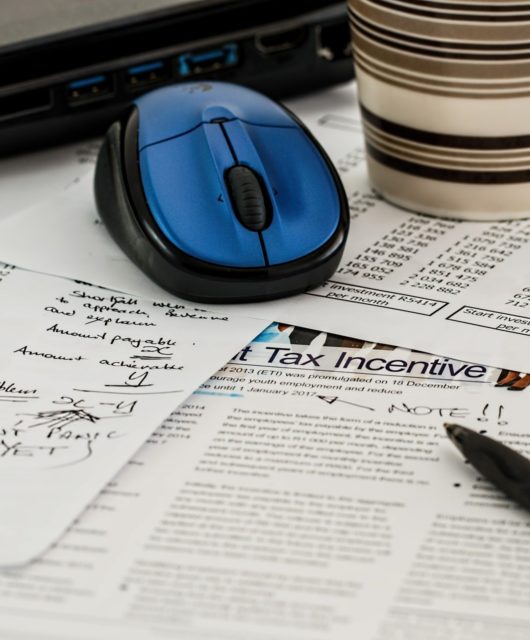How to Get Finances in Order: 10 Top Tips to Financial Stability
 The term “financial stability” can vary from person to person depending on lots of factors including your age and your current financial goals.
The term “financial stability” can vary from person to person depending on lots of factors including your age and your current financial goals.
No matter where you are in life at the moment, it’s important to know how to get finances in order so you’ll be confident about your future.
Whether you’re still learning how to manage your finances or you just need to brush up, read on for a list of 10 tips that can help bring you some financial stability.
Table of Contents
- 1 1. Take Advantage of Employer Benefits
- 2 2. Make Saving Money a Priority
- 3 3. Use Personal Finance Apps and Software
- 4 4. How to Get Finances in Order with Credit Cards
- 5 5. Cut Out Unnecessary Spending
- 6 6. Start an Emergency Fund
- 7 7. Consider Your Investment Options
- 8 8. Be Frugal
- 9 9. Earn More Whenever Possible
- 10 10. Learn as Much as You Can
- 11 Start Planning Your Future Today
1. Take Advantage of Employer Benefits
If your employer offers things like a 401(k) account or life insurance, it’s wise to take advantage of these perks. Most employers will “match” a certain percentage of whatever you put into your 401(k), which can help your money grow faster.
Things like life insurance are important for your family in the event that something were to happen to you. Talk to your human resources department and find out more about things they offer that can help you feel more financially secure.
2. Make Saving Money a Priority
When you start to focus on saving your extra money, you’ll be surprised at how fast it can grow. Look for high-yield accounts that offer a higher interest rate so you can get more money at a faster rate.
Set your bank account up so that it automatically deposits a specific amount into your savings every week or every month. You won’t even notice it after a while, but your savings account certainly will.
3. Use Personal Finance Apps and Software
There are plenty of excellent personal finance apps and software programs available that can help you focus on your budget. These apps can track spending, help you manage payments, and keep an eye on your savings.
If you’re looking for the best personal finance software for Mac, there are several excellent choices that are available. You’ll also find plenty of finance apps for smartphones on the iOs and Droid platforms. Link your bank and credit card accounts to the app so you can easily monitor everything all in one place.
4. How to Get Finances in Order with Credit Cards
Credit cards can be a great resource in a pinch, but they can also cause some pretty serious financial damage if you’re not careful. If you currently have several cards, consider transferring the balances of your high-interest cards over to a low-interest card.
When you pay interest on your credit cards, it takes a lot longer to get the principal balance down. Consolidate your cards either by taking out a low-interest personal loan or by transferring them over to a lower-interest card.
5. Cut Out Unnecessary Spending
Maybe you have a gym membership that you never use, or maybe you’ve stopped watching Netflix as often as you used to. Look at your total expenses and try to find ways to cut out spending wherever you can.
You can avoid excess spending by making your coffee and taking it with you instead of stopping at the coffee shop. Pack your lunch every day, and do things that will eliminate spending on services or products that aren’t really essential.
6. Start an Emergency Fund
If you really want to know how to get finances in order, an emergency fund is crucial. Start a separate savings account where you can let money accumulate to be used in extreme emergencies only.
If you lose your job or have a health-related event, an emergency fund can be invaluable. Use the money in your fund to pay things like your rent or mortgage and other bills until you can get back on your feet.
7. Consider Your Investment Options
Whether it’s stocks and bonds or cryptocurrency, take a look at some of the many investment options available. If you’re young, you could end up making a decent profit if you start investing now.
Talk to a financial advisor who can guide you through the process. The goal is to make your hard-earned money work for you so that you’ll have more saved up in the future when it’s time to retire.
8. Be Frugal
Cutting out extra expenses is one way to save, but you can also be frugal in other aspects of your life. Consider switching from name-brand foods to store brands to save cash on your grocery bill.
Take advantage of coupons that can help you save even more money at the checkout line. Buy in bulk and freeze foods whenever possible so that you’re getting more product for less money.
9. Earn More Whenever Possible
One way to be more financially stable is to earn extra cash and use it to pay down debt or put it in savings. Sell things you no longer use or want on apps like eBay or try a local listing service.
Ask your boss if you can get some overtime to put more money in your pocket. A side hustle like driving for Uber is another great way to earn more money in your spare time.
10. Learn as Much as You Can
Educate yourself about investing, savings, and interest rates so that you feel confident in your financial decisions. The more you learn, the better off you’ll be when it’s time to make major choices regarding your money.
Use the Internet to your advantage and visit financial forums to ask questions and read answers. The more you learn, the better your chances are that you’ll gain financial stability faster.
Start Planning Your Future Today
Once you know how to get finances in order, you’ll be much more aware of where your money goes. With some good spending and saving habits and a little bit of help, you’ll be on a good financial footing in no time.
If you’re looking for an apartment and want to browse the latest listings, be sure to visit our website today.









